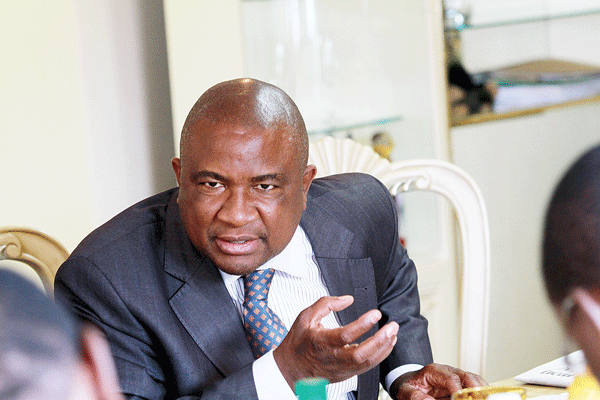
AN embarrassing episode in which the Zimbabwe Football Association (Zifa) attempted to cunningly dribble past their creditors by dissolving the association in June, might come back to haunt the local football mother body after local football stakeholders raised concerns on the matter to a Fifa envoy who visited the country recently.
BY DANIEL NHAKANISO
Fifa development officer for Southern and Eastern Africa, Ashford Mamelodi was in Zimbabwe two weeks ago for a three-day fact-finding mission on the state of football in the country where it emerged that even Zifa’s legitimacy is now being contested.
Mamelodi engaged Zifa executive members, councillors, former administrators, the association’s workers and the game’s stakeholders, including creditors’ during his visit.
The veteran administrator, who also met with the Sport and Recreation minister Makhosini Hlongwane, the Footballers Union of Zimbabwe, former referees and the Sport and Recreation Commission (SRC) officials, said stakeholders raised concerns over Zifa’s eligibility.
“It was a fact-finding mission and I managed to meet the different stakeholders in Zimbabwe football. A lot of the stakeholders brought up the issue of the Zifa dissolution and formation of [the National Football Association] Nafaz as part of their submissions during my visit.
“They are not happy and don’t even think that Zifa is legal as it is. The Zifa executive committee also made their submissions to demonstrate that Zifa is legal, but it is one of the puzzles that will go into the report that I will be submitting to Fifa and they will then take it from there. I’m in the process of finalising the report which will go to Fifa and they will then make a determination on the way forward,” Mamelodi told Standardsport from his base in Botswana last Friday.
- Chamisa under fire over US$120K donation
- Mavhunga puts DeMbare into Chibuku quarterfinals
- Pension funds bet on Cabora Bassa oilfields
- Councils defy govt fire tender directive
Keep Reading
Former Zifa chief executive officer Ndumiso Gumede also weighed in on the matter recently, arguing that Zifa’s decision to voluntarily dissolve itself meant that there was no longer any legal entity in charge of football currently in Zimbabwe.
“The way forward would be for the Sports Commission to appoint an interim committee to start a process of running the affairs of Zimbabwe football, like the government did when Zimbabwe gained independence from Britain in 1980,” Gumede told the South Africa-based African Independent.
“Unless the court ruled that they can resuscitate themselves, they just cannot go back to reclaim their status quo after taking a voluntary decision to dissolve.”
Another local football stakeholder, who spoke on condition of anonymity, said Zifa was supposed to convene another meeting to rescind their decision to dissolve the association.
“They revoked their own mandate because after their bid to dissolve Zifa failed they needed to convene a special meeting to rescind the decision which has not been done up to now,” the source said.
The country’s football leaders met at Zifa Village on June 4 and overwhelmingly voted to dissolve the body before creating the Nafaz a few hours later.
After dissolving Zifa, the football authorities sought permission to liquidate and surrender their problems to a trustee who would be appointed by the High Court to deal with the entity’s debts now in excess of $6 million.
The football controlling body sought sequestration and surrender as well as an order for the appointment of a trustee. Zifa nominated Freddie Chimbari of Fremus Executor Services as an appropriate trustee to manage their affairs.
But the Master of the High Court strongly opposed the move by Zifa, saying it was a deliberate attempt to avoid paying their debts to the prejudice of the creditors.
The dissolution was also met with stiff resistance from various stakeholders, particularly creditors, the SRC and government through Sports minister Makhosini Hlongwane, who argued that proper procedures had not been followed.
Although the Phillip Chiyangwa-led executive initially stood their ground, arguing that everything was done above board, they were eventually forced to make a major climb-down, while another fresh bid to dissolve the association again on July 9 flopped.












